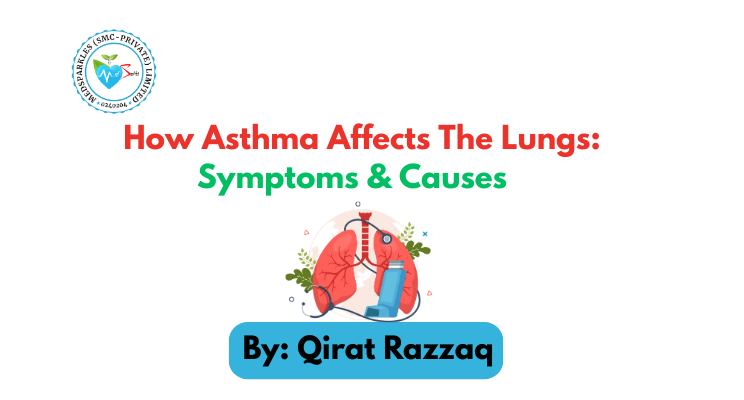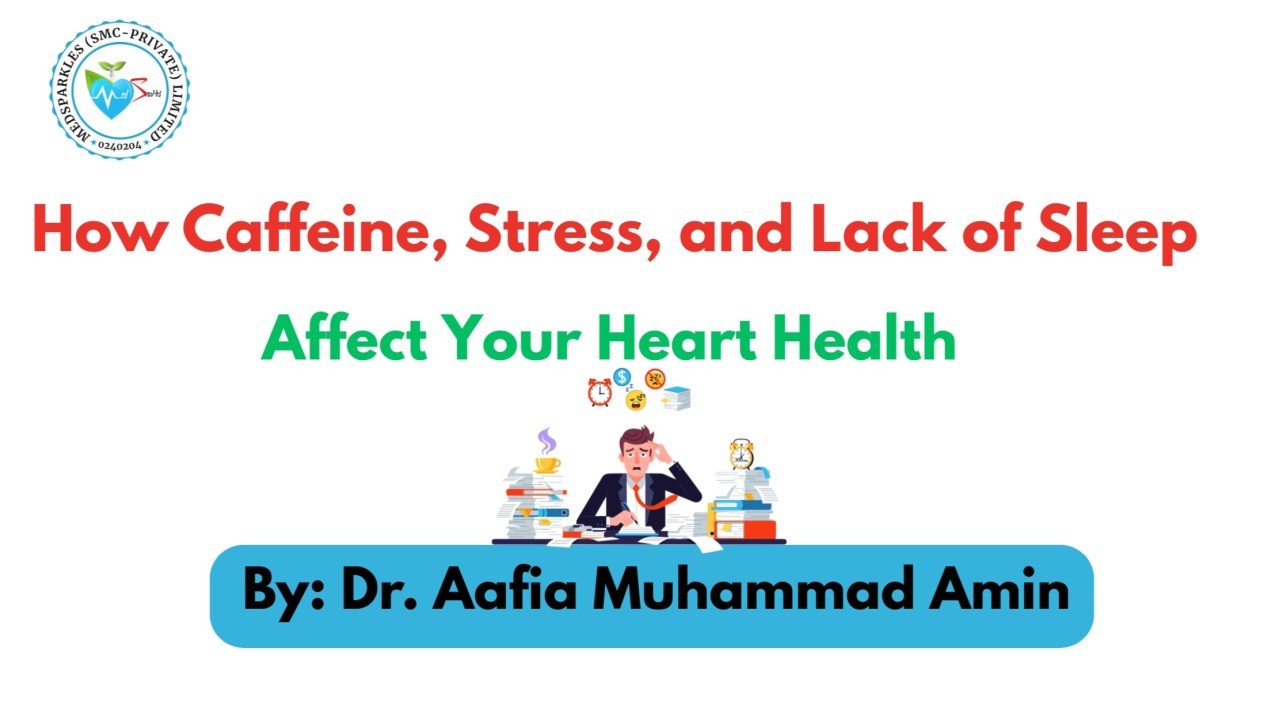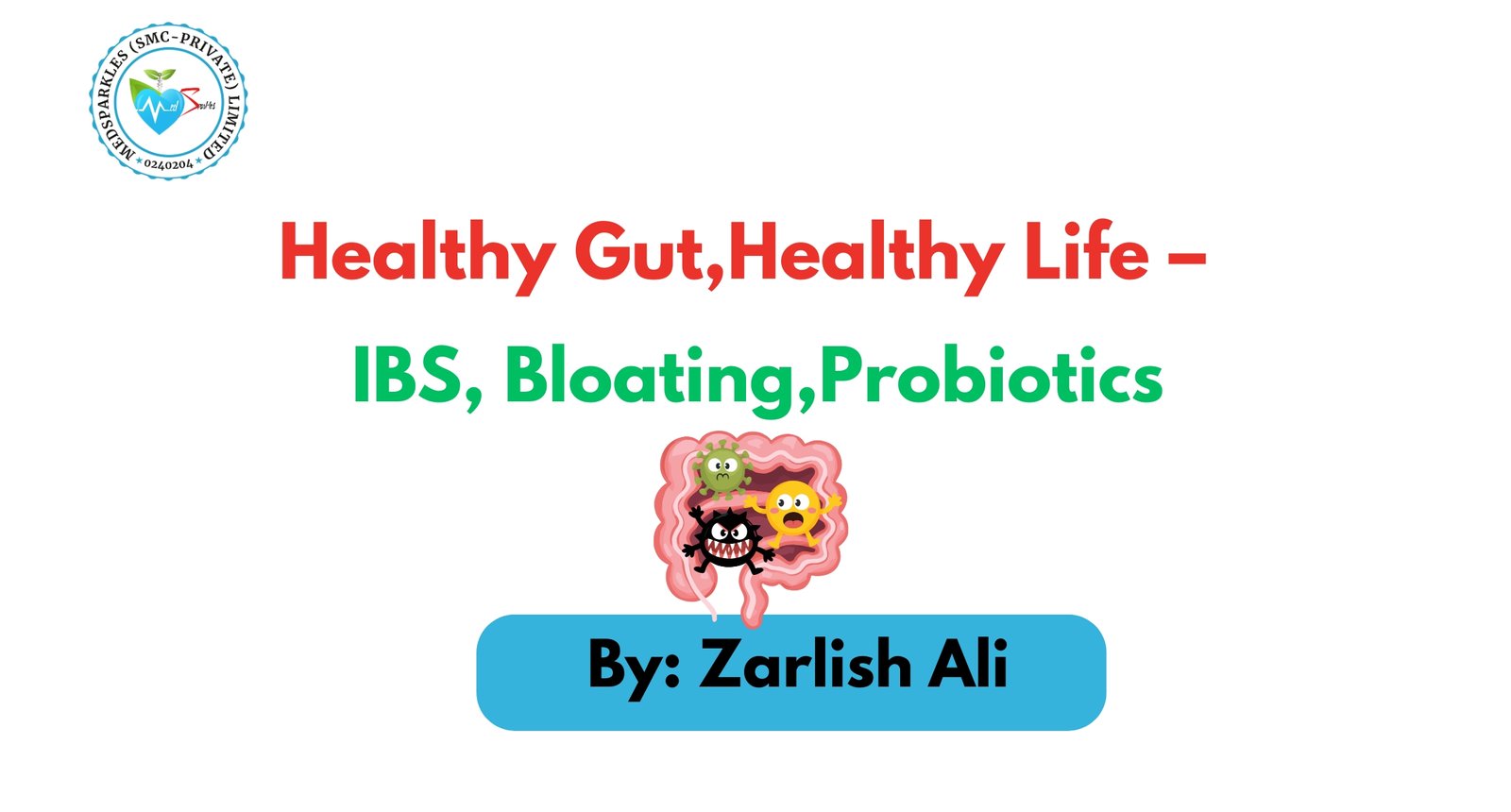Have you ever felt short of breath, your chest is tightening and no matter how deeply you inhale, the air just won’t make out to your lungs? Millions of people around the word experiencing this and it is not uncommon; it’s asthma.
Asthma is a chronic respiratory condition that involves nearly 350 million people worldwide. Asthma impacts breathing and not only disrupts the normal functioning of lungs but also affects the entire respiratory system. Lungs help us to breathe in oxygen and breathe out carbon dioxide. Asthma causes inflammation in airways and tightening of muscles in bronchial walls. It makes the person harder to breathe and symptoms like coughing and sneezing appear.
Asthma is more than just a breathing problem. The root of the condition lies in understanding how asthma affects the lungs and airways. In this blog, we’ll look at what happens inside the lungs, the warning signs and triggers behind it.

How asthma affects the respiratory system?
Asthma affects the respiratory system by tightening airways. It starts from nose and throat down to the bronchioles in the lungs.
Your throat may become swollen and sensitive to triggers, leading to coughing and sneezing. In bronchi, the airway lining may become thicken leading to more mucus production and narrowing of airways. Due to all of this, symptoms like shortness of breath, wheezing and chest tightness appear.
Symptoms of asthma
Symptoms of asthma include
· Feeling exhausted
· Coughing
· Wheezing
· Shortness of breath
· Chest pain
What causes asthma?
For adult onset asthma, smoking, exposure to wood dust, high BMI, volatile organic compounds exposure or chemical exposure are the major causes. Avoid these triggers to prevent worsening symptoms.
· Allergies are the most common triggers of asthma. The immune system detects allergens as a threat and makes antibodies and chemicals. These chemicals causes the airways to swell and fill with mucus.
· Pets and animals’ fur, feces, or other body fluids can cause asthma.
· Food allergies may trigger asthma in some individuals.
· Allergy from dust mites, pollen, cockroaches and mold can also trigger asthma.
Dust mites are insects like pests and they feed on dead human skin flakes. You can get rid of them by washing entire bedding with hot water.
Cockroach is a common household insect and appears like reddish-brown to black in color. They has two long antennae. Clean regularly and manage trash to avoid them.
Mold is a type of fungus which grows in damp areas. You can prevent mold by increasing ventilation and controlling humidity.
· You’re at risk if you have family history of asthma. It can be transferred from parents to offspring if any of them has asthma.
· Respiratory viral infection that impairs breathing.
Preventions of asthma
· Know your triggers. Note down on a diary or notepad about the asthma attack like what you were thinking or where you are at that time.
· Make a plan for asthma management. Follow your plan when the condition’ get worse.
· Exercise has a great impact on asthma. Moving more increase asthma free days and quality of life in children.
· Take your medicines as prescribed at the proper time.
· Plant based products in diet might give protection against asthma and improve symptoms.
· Reduce stress level. Stress can trigger asthma attack.
During an asthma attack, if you feel out of breath then immediately consult to the doctor if you feel that you can’t control it.
Can asthma kill you?
Asthma cases are manageable with proper diet and asthma management plan. As an asthma attacks gets worse, it can become life threatening. Death can be occur due to the airway obstruction and insufficient oxygen to the lungs or other organs.
Conclusion
Asthma demands proper management and awareness. Identify triggers, follow asthma management plan and adopt a healthy lifestyle to manage it. Have a check on your weight. It can be life-threatening but having right medication and healthy lifestyle decrease the risk.
FAQs
Who is at more risk for asthma?
Someone who is more exposed to chemicals, children who are underweight or overweight are more at risk.
Which test is done to diagnose asthma?
Spirometry is used to diagnose asthma in individual 5 years or older.
Can a CBC detect asthma?
CBC alone cannot detect asthma other test needed to completely diagnose asthma.
What is the most common treatment for asthma?
Inhaled corticosteroids are the most effective and common treatment.
What is the fastest way to relieve asthma?
Focus on breathing and prescribed quick relief inhaler can be the fastest way to relieve asthma.





